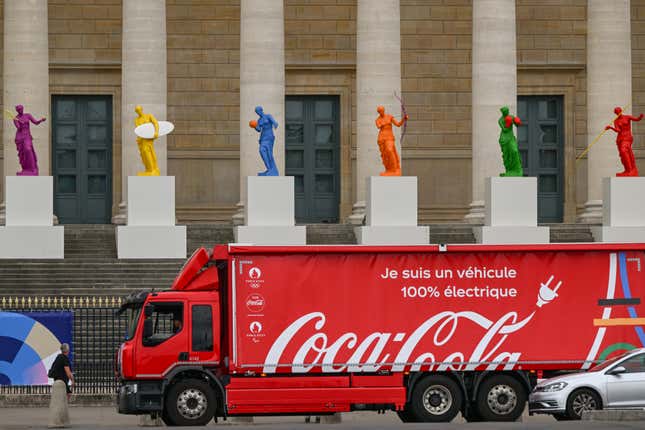
In This Story
Weight loss drugs and non-alcoholic options have consumers holding off on buying sodas — at least in the U.S.
But even so, Coca-Cola posted robust second-quarter earnings on Tuesday, driven in part by strong global demand for its pop offerings, prompting the beverage giant to raise its full-year guidance.
“We are encouraged with our second-quarter results, which delivered solid topline and operating income growth in an ever-changing landscape,” said James Quincey, CEO of Coca-Cola, in a statement.
However, in North America, volume sales declined by 1% during the quarter. Quincey told investors during the company’s earnings call on Tuesday that volume decline for its U.S. division was driven by “softness in away-from-home channels,” which include its water, sports, coffee and tea, and soda products.
The company said the decline was partially offset by its Fairlife milk offering and its namesake soda, Coke, which finished in first and second place in retail sales growth during the quarter.
To offset the decline, Quincey said Coca-Cola is working with food chains to make its soda part of combo meals. The soda giant was said to be working with McDonald’s to help it boost the fast food chain’s $5 meal deal, which includes a soft drink.
Overall, Coke still beat Wall Street’s expectations. During the second quarter, it reported $12.4 billion in revenue, about $0.84 cents a share. The Street had forecasted Coca-Cola would generate revenue of $11.76 billion, roughly $0.81 cents a share, according to FactSet.
The company said it now forecasts organic revenue growth between 9% and 10%, upping its previous prediction of 8% to 9%.
Like Coca-Cola, Pepsi has been struggling to capture the attention of U.S. consumers, who are increasingly turning to products that prioritize weight loss and healthier habits. (Young adults in the U.S. are drinking way less alcohol than they once were, according to a Gallup poll). In early July, Pepsi blamed a series of recalls for its subdued second quarter.